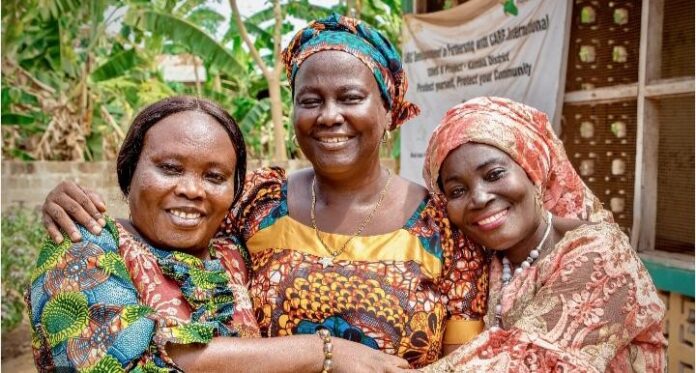By The Prowess
When gunfire ceased and silence fell across Sierra Leone in 2002, it marked the official end of an eleven-year civil war that left more than 50,000 dead and displaced millions. While the peace agreement was signed by men in suits and uniforms, the true work of healing, rebuilding, and reconciliation began quietly, largely in the hands of women.
For many Sierra Leoneans, peacebuilding conjures images of political negotiations and high-level diplomacy. But for the thousands of women who bore the brunt of the war, through displacement, sexual violence, and the destruction of their families, peace meant something far more personal and urgent: survival, restoration, and healing.
Throughout the war, women endured unspeakable atrocities. They were abducted, raped, forced into labor, and made to watch their communities crumble. But even in those darkest times, they became anchors of resilience, caring for orphans, organizing makeshift schools, and preserving dignity in the face of horror.
Fatmata Kamara, now a midwife in Makeni, recalls helping deliver babies in the bush while gunshots rang in the distance.
“We had nothing, no gloves, no clean water,” she says. “But life continued. We had to make sure our people lived.”
These acts of endurance would later become the foundation for one of the country’s most powerful peacebuilding forces.
When the Lomé Peace Accord was signed in 1999, women’s participation in formal negotiations was minimal. Yet, outside the political spotlight, women’s organizations had already begun sowing the seeds of reconciliation. The Women in Peacebuilding Network (WIPNET), Mano River Women’s Peace Network (MARWOPNET), and the 50/50 Group mobilized communities, advocated for non-violence, supported traumatized victims, and facilitated the reintegration of former child soldiers.
Local leaders like Hawa Samai, now head of the Reconciliation and Reconstruction Trust, emphasize that women’s involvement was “never about power; it was about survival. We knew peace wasn’t just a document, it had to be felt in our homes.”
In Kailahun, where the war began, women led post-war dialogues between rival families and communities. In Bo, women’s groups ran psychosocial counselling sessions, often in open-air shelters, for survivors of sexual violence. These efforts rarely made headlines, but they healed deep wounds that politics could not touch.
Despite their critical contributions, women still face significant barriers to formal participation in peacebuilding. Cultural traditions, patriarchal institutions, and limited access to education and leadership roles continue to marginalize their voices.
Though Sierra Leone adopted its first National Action Plan (SiLNAP) for Women, Peace, and Security in 2010, aligned with UN Security Council Resolution 1325, implementation has been patchy, especially in rural districts. Funding gaps, political tokenism, and a lack of follow-through have hampered progress.
“Women are always there when the guns fall silent,” says Mariatu Sesay, a community organizer in Port Loko. “But when decisions are made, we are often forgotten.”q
Today, a new generation of Sierra Leonean women is reclaiming space in the national peace narrative. From law students advocating for justice reforms to grassroots mediators resolving land disputes, the spirit of peacebuilding lives on, quietly but powerfully.
The recent Gender Equality and Women’s Empowerment (GEWE) Act, which mandates a minimum 30% female representation in public life, offers a hopeful framework. But activists stress that numbers alone are not enough.
Zainab Bangura, former UN Under-Secretary-General said they need women trained, funded, respected. Peace must be inclusive, or it is never sustainable.
In Sierra Leone, the road to recovery did not begin at the conference table. It began in burnt-out villages, crowded camps, and broken homes, where women held the nation together with their bare hands.
As the country continues to grapple with political divisions, economic hardship, and post-conflict trauma, the question is no longer whether women should be included in peacebuilding. It is whether Sierra Leone can afford to move forward without them


